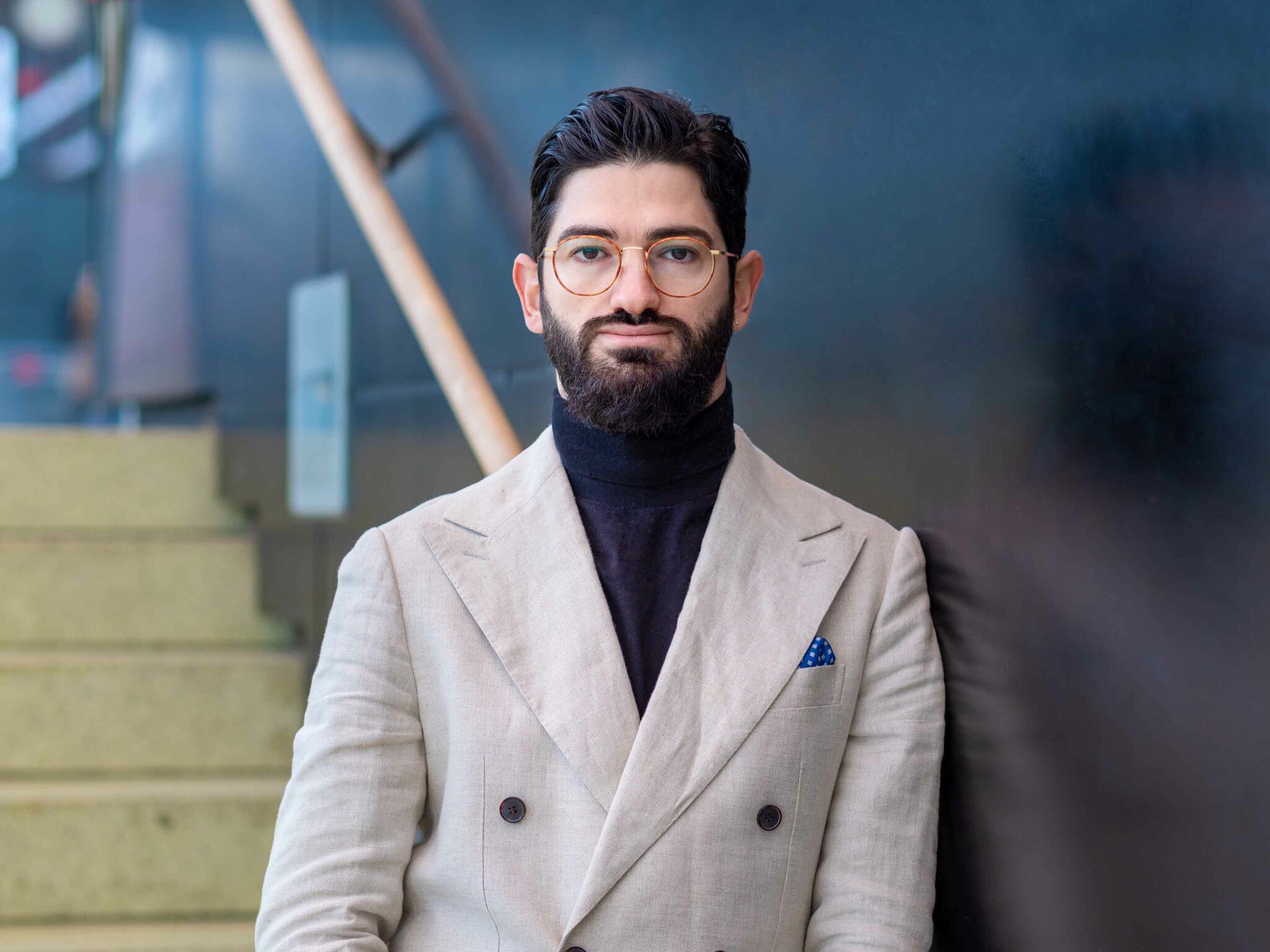
© chaiwat - stock adobe.com
Online Trading: YUFE Postdoc Investigates Consumer Law
When we buy something on the internet, we often enter into contracts that are hard to understand. This is exactly what Nicholas Mouttotos deals with at the University of Bremen.
Everyone knows the situation: You buy a product online and have to give your okay for contract terms that you rarely read or even understand. One person who deals with this in his research is Nicholas Mouttotos. The 33-year-old scientist from Cyprus works as a YUFE postdoc at the University of Bremen. In this interview, he talks about his work, why he chose Bremen, and why he recommends the YUFE alliance (Young Universities for the Future of Europe) to academics.
Mr. Mouttotos, what exactly is your research topic?
Simply put, my research topic deals with the concept of “informed consent” and its role in European consumer law.
What does that mean?
As consumers, we make contracts all the time when we are purchasing products online for example, and within these contracts, the businesses attach their standard terms and conditions. Studies from behavioral economics show that these conditions are rarely read by consumers but they are also difficult to understand. This is a major problem in contract law because traditionally the idea of a contract involves an agreement to terms by the contracting parties. With ingenious ways, contract law doctrine has tried to remedy this problem by requiring the business to bring a particular clause, which might be regarded as unfair, to the consumer’s attention. Such specific information, of course, might not be relevant to the consumer who just wants to receive the product or service. By making the consumer aware of the existence of a term that might be deemed unfair, the idea of informed consent in contract law, which is a by-product of neoclassical economics and the model of the homo economicus, becomes clear. Based on this model, the consumer is a rational actor who is able to analyze information and make (rational) decisions that will increase his or her welfare.

©Matej Meza / Universität Bremen
However, this model does not represent reality.
Exactly, and it has been criticized for that. My project will try to identify the precise rules in the European Union that promote this model (e.g. the Unfair Terms in Consumer Contracts Directive has a transparency requirement whereby terms should be drafted by the seller or supplier in clear and intelligible language) and see how these rules are being extended into new areas such as private international law. I intend to look at specific member states and whether they promote such a model through the decisions of their respective courts and tribunals. This will inevitably lead to noting down the similarities and differences in the approaches found from comparison.
Will your research change anything for consumers?
Maybe in the long-run. The intention is to analyze which approach better promotes the interests of consumers and whether a novel solution should be proposed instead, one that does not result in an informational overload.
“The Faculty of Law has a long tradition in research in European Private Law.”
Why did you chose the University of Bremen?
The reason for choosing the University of Bremen is mainly due to Professor Calliess and his work on private international law and transnational law, an area where he is one of the leading authorities. Other than that the Faculty of Law at the University of Bremen has a long tradition in research in European private law (international & economic), both at the ZERP (Centre of European Law and Politics), and more recently at the Institute for Commercial Law. The idea of informed consent that my project addresses, and its prerequisites and limits, is a theoretical challenge, which is not only present in contract law in general, but also in other areas such as data protection, medical care, and more generally in human rights law. In Bremen, Professor Benedikt Buchner is conducting research in European data protection law. Furthermore, the institute and Professor Calliess have an established cooperation with the Faculty of Business Studies & Economics, where the issue of informed consent is also part of the research agenda. Lastly, as a comparative scholar myself, I like the idea of working in the German academic environment, where I have the chance to get as acquainted as possible with German legal culture.
A question about the YUFE alliance – the network in which the University of Bremen is shaping a European University with nine other universities. You are one of eight researchers participating in the first YUFE postdoc program. Why did you apply for it?
During the final stages of my PhD at Maastricht University, which also belongs to YUFE, I was contemplating my next steps and I got in touch with Professor Calliess at the University of Bremen to develop a research project on private international and consumer law. Since I was part of Maastricht University, I had the opportunity to apply for a YUFE mobility call at the University of Bremen back in 2019. So I spent five months at the Institute for Commercial Law and during this stage, being familiar with what YUFE does, I was informed of the call for postdoctoral applications. Other than that, I have been involved with the discussion between the law faculties of the ten YUFE partner universities and the promotion of cooperation between these faculties. Thus, I saw it as a good opportunity to apply for the postdoctoral program and have the opportunity to be involved further with universities that were my alma mater (Maastricht University and the University of Cyprus), but also have the chance to contribute – to the extent possible – to the realization of the goal of establishing a true European University. Now, I am privileged to be one of the first researchers of the newly established YUFE postdoctoral program.
“The YUFE alliance promotes mobility and I believe it is very beneficial for researchers.”
Would you recommend YUFE to other researchers?
Definitely.
Why?
For plenty of reasons, including the great ambition and dedication of the alliance and the people representing it, as well their willingness to offer the best environment for undertaking one’s research. Mobility is also something that the alliance promotes and I believe it is very beneficial for researchers as they can gain more insights and perspectives on their work from discussions with colleagues from other universities. It is also very important in order to build a strong academic network, which is always beneficial.